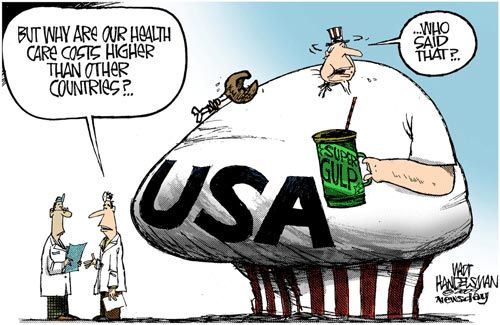This $1,650 pill will tell your doctors whether you’ve taken it. Is it the future of medicine?

By Christo[her Rowland, Washington Post
04/29/2019
When the Food and Drug Administration approved in late 2017 a schizophrenia pill that sends a signal to a patient’s doctor when ingested, it was seen not only as a major step forward for the disease but as a new frontier of Internet-connected medicine.

Patients who have schizophrenia often stop taking their medicine, triggering psychotic episodes that can have severe consequences. So the pill, a 16-year-old medication combined with a tiny microchip, would help doctors intervene before a patient went dangerously off course.
Seventeen months later, few patients use the medication, known as Abilify MyCite. Doctors and insurance companies say it is a case in which real-world limitations, as well as costs, outweigh the innovations that the medical industry can produce.
In the case of schizophrenia patients, some doctors warn that Abilify MyCite could exacerbate the very delusions that the medication is designed to prevent.
“Patients who have a lot of paranoia might be uncomfortable with the idea of a medicine that is transmitting signals. The patient may be afraid to take it,’’ said Richmond psychiatrist James Levenson. “The science of this one is kind of ahead of the data.’’
The debate over Abilify MyCite underscores a dilemma American health care will increasingly face as the medical industry and Silicon Valley try to promote innovation. For decades, medicine has been effectively delivered through a few simple mechanisms: a pill, a cream, a nose spray, a needle.
But in the hopes of improving outcomes further, the industry is turning to an array of new technologies against one of the biggest, and most human, challenges in treating disease: getting people to take their medicine in a consistent way.
Companies are producing apps for substance abuse treatment, diabetes management, and heart and blood pressure monitoring at a rapid clip. Studies are underway for more digital pills to treat cancer, cardiovascular conditions and infectious disease.
And while many of these may pass regulatory hurdles that show they’re safe has been leaning into medical innovation and pushing back against excessive regulation — doctors and insurers are not convinced that the technologies will so easily make the difference that the pharmaceutical industry is betting billions on.
“I think that these technologies have a lot of potential benefits, but it’s going to be a question of evidence — that they can demonstrate value to patients and payers,’’ said Scott Gottlieb, who stepped down this month as FDA commissioner, a job in which he made approval of leading technology a hallmark.
The first digital therapy to win FDA market clearance, Abilify MyCite’s sensor-embedded pill remains off the market because of physician and insurance industry reservations.
Now Maryland-based Otsuka Pharmaceutical, which makes the medication, may be able to jump-start its acceptance by offering it to mentally ill people who qualify for low-income government health insurance. Otsuka won approval from Virginia Medicaid authorities last month to begin coverage. The company also is starting a pilot program in Florida and is considering another in Oklahoma.
Otsuka considers itself a pioneer. Abilify is an older brand-name drug marketed by the company to treat schizophrenia and other serious mental illnesses. Abilify MyCite adds the electronic tracking component and, at $1,650 a month, costs almost 30 times as much as a 30-day supply of generic Abilify at a Costco pharmacy.
Otsuka developed the treatment with Proteus Digital Health, a Silicon Valley company that markets the digital component. Proteus is pioneering its use in other therapies including cancer patients taking chemotherapy drugs.

After the daily antipsychotic pill is swallowed, a digital sensor the size of a grain of sand (and made of copper, magnesium and silicon, which Proteus says are all found in food) transmits a signal when it comes into contact with stomach acid. The signal is captured by a patch worn on the patient’s torso. The patch sends a signal to an app on the patient’s smartphone. The app uploads data to a secure website for viewing by doctors. Otsuka has won special federal approval to provide smartphones “with highly limited functionality’’ to people who can’t afford them.
The goal is to solve a vexing problem: Schizophrenia patients often stop taking their medicine, triggering psychotic episodes that can have severe consequences. Abilify MyCite is supposed to help doctors keep track of which patients are staying on their medication. The app also allows patients to enter information about their mood.
The approval led to debate among psychiatrists about the ethics of invasive monitoring for patients whose mental competency at times may be borderline. They raised questions about patients’ autonomy, data privacy and ability to navigate the technical challenges of the system.
But proponents say the medical need is so great that Abilify MyCite deserves a close look.
Virginia state Sen. R. Creigh Deeds (D-Bath), who chairs a special mental health committee in the legislature, said he had not heard of the therapy until contacted by The Washington Post. But he said in an interview that he was intrigued by a technology that could help people like his mentally ill son, Austin “Gus’’ Deeds, 24, who slashed Deeds on the face in 2013. Deeds said his son had stopped taking medication nearly a year beforehand.
“There is a need for people who are caregivers to make sure the person’s taking the medicine,’’ Deeds said. “The other side of it is the civil liberty issue for the person who is sick.’’
Gus Deeds thought his medications “made him less of who he was. It dumbed down his personality,’’ Deeds said. But, he added, “a person does not have the right to destroy their life, or the life of others.’’
He said he did not have an opinion on whether Virginia Medicaid should add Abilify MyCite to its list of approved prescription drugs.
Otsuka emphasizes that no patient will be asked to use Abilify MyCite without showing a clear desire to do so. Schizophrenia patients who have paranoid feelings about ingesting a digital pill are unlikely candidates for the drug, the company said.
“It’s unlike a pharmaceutical launch where you proactively blitz all the states. We’re not doing that,’’ said John Bardi, Otsuka’s vice president for public affairs and digital business development. “It’s really about patients who want to improve their treatment goals. If they have any concerns, it’s probably not the right solution for them.’’
Otsuka executives recently gave a presentation about the drug to the Virginia chapter of the National Alliance on Mental Illness, a patient advocacy group, said Rhonda Thissen, the chapter’s executive director. She praised its goal of keeping patients on their medication but said it raises many perplexing questions.
The wave in digital medicine is raising similar value questions across the spectrum. With FDA approvals in hand, medical tech companies are looking for doctors and health-care networks to help them prove in the real world that their new products are worth the extra expense. These include manufacturers of smartphone apps for opioid addiction and diabetes, as well as an asthma inhaler that transmits data each time it is used. The FDA also has approved a program that uses artificial intelligence to help doctors spot strokes with increased speed.
Executives and analysts say the digital health marketplace is a bewildering Wild West to most consumers and physicians. In 2017, 318,000 mobile health apps were available worldwide, according to a government review; the majority have not been subject to rigorous FDA review.

In cases where software is paired with drugs and devices or it guides medical decision-making, the FDA has stepped in. It has cleared functions that require a prescription, such as Abilify MyCite, and those that don’t, such as Apple Watch’s latest heart monitoring functions.
Yet even FDA approval does not confer cost-effectiveness. Insurance companies are reluctant to offer coverage at this early stage, specialists said, particularly when trials that formed the basis of FDA clearance involved relatively few patients.
“There could be a series of unintended consequences. You have to be cautious with something that is so novel that is being brought out,’’ said a health insurance executive who spoke on the condition of anonymity to discuss internal coverage deliberations.
Aside from the fraught ethical questions, the FDA’s approval stopped far short of proving that Abilify MyCite meets its clinical goal. The only thing the agency approved was that the digital pill transmitted its signal and that most patients can manage the smartphone app. The product’s label explicitly states that the FDA did not establish whether it would help patients continue taking their medicine.
The South Florida Behavioral Health Network, which coordinates state payments to mental health treatment centers, has agreed to begin paying for the treatment.
Patients often do not reliably report whether they have been taking their medication; Abilify MyCite will give doctors data to help them make important decisions about care, said John Newcomer, president and chief executive of the network.
“If this is framed as yet another useful tool in the tool kit, to help you get back in control of your life, this ends up being an empowering thing for patients,’’ Newcomer said. “It’s another way to get them on the road to recovery.’’
Specialists who closely follow these advances say that consumers and doctors are in for a wave of such digital therapies and that it inevitably will be confusing.
“I think you’re seeing some growing pains,’’ said Steven Chan, a physician with the U.S. Department of Veterans Affairs in Palo Alto, Calif., who has expertise in telemedicine and health technology. “The FDA is trying to find ways to make a legitimate space but also a space where pharmaceutical manufacturers can innovate, to find new ways to deliver care.’’
100
Comments
Конец формы
- All Comments 100
djmgtr68
5 minutes ago
This is a drug idea that can be loved by the abilify CEO, board of directors, and stock holders, and by people who do not understand the vast potential for toxic interactions between this type of program and the underlying psychosis.
Likethumb_up
Replyreply
Linklink
Reportflag
SchwarDavid
14 minutes ago
So what happens if they don’t take the pill? The provider takes time out of their day to repeatedly call the pt to remind them?? Why not just use the smart phone reminder to beep incessantly until the patient turns off the reminder. I am a physician and I for one don’t want the responsibility to be a “pill nanny”.
Likethumb_up1
Replyreply
Linklink
Reportflag
OliversTwist
26 minutes ago
For all the issues of both privacy and cost, there is also the idea that this may not really solve much. Simply informing one’s doctor that medication is not being taken is not cause for either involuntary commitment, nor forced medication. It would have to be shown that the patient is an actual threat to others or him/her self. Not taking medication is not an indication of that.
Every aspect of this idea raises valid and serious concerns. From the efficacy, to the cost, the privacy, etc. Cost increases are not only the medication itself. Now you also have to account for the added time spent by medical personnel to monitor everyone using this system.
What about lost smartphones? Possible problems with each and every chip?
There is so much here to address, it’s a long way off before all of it can be sorted out.
Likethumb_up
Replyreply
Linklink
Reportflag
bjwise82
28 minutes ago
Here’s my take: Intrusive as such monitoring may be, it is justified in many cases. In the most severe cases, we already confine mentally ill people to hospitals and force them to take medication even if they don’t want it. No one questions that practice. This would be a lesser step, for people who aren’t quite that badly off, but who definitely need to be on medication for their safety and others’.
Likethumb_up
Replyreply
Linklink
Reportflag
quacker
30 minutes ago
I do not have paranoia. But I would never take anything into my body that tracks me or reports to anyone. There is no justification for this.
Likethumb_up2
Replyreply
Linklink
Reportflag
VanRok
42 minutes ago
Healthcare system will not pay for such technology with out proven benefit. Your provider is paying for the best outcomes of the drug achieved under the artificial conditions of a clinical trial with near 100% compliance to treatment. So healthcare providers will not and should not pay twice. The responsibility should be with pharma to ensure that real-world outcomes match those in trials by providing such technologies including apps with reminders etc. so their drugs provide the benefit promised in their trials
Likethumb_up1
Replyreply
Linklink
Reportflag
kamikazikat
2 hours ago
Yes. And there is one company that is adding digital transmitters to opioids, too. So they can tell if you are taking them on schedule, or if they are being diverted. They may find that prescription opioids are not the problem, and that the problem is illegal Chinese fentanyl imports after all.
Likethumb_up
Replyreply
Linklink
Reportflag
skramsv
17 minutes ago
The real problem is doctors inability to direct people to proper treatment. There are millions of people that suffer real, physical disabling pain every day. Insurance refuses to pay for PT, OT, surgeries, and/or medications that would go along way to fixing the problems. Now law makers want to save these people from becoming addicted and cut them off from legal pain relief and a “normal” life. What would you do? The down-low drugs on the corner starts looking good.
Then there are the people with mental pain as in mental health disorders. GPs feel they can treat them with highly addictive drugs that only mask symptoms but do not treat the root problem. Here too insurance has been the roadblock to mental health care. Then there is little scrutiny of treatment centers if they focus on addiction. Too many times you are cute when your money runs out.
So while some are chasing the ultimate high, many are just trying to feel good enough to get through the day, collect their paycheck, and live with a tolerable level of pain. The opioid crisis exists because these people were cut off from legal pain control. Yet the Feds do nothing to stop doctors from prescribing highly addictive anti-depressants that do not work for most people, highly addictive drugs like Adderall.
Likethumb_up
Replyreply
Linklink
Reportflag
ROBERT%20FRANK%20NEASE%20JR
2 hours ago
This technology misses the main problem with oral medications: people aren’t wired to take pills reliably. Contraception research has shown conclusively that “forgettable” methods (IUDs, implantable hormones) wildly outperform other methods. That’s where innovation should focus for other medications.
Likethumb_up1
Replyreply
Linklink
Reportflag
teletype
3 hours ago
(Edited)
This method will not assure that the medication is taken; it simply notifies that it hasn’t.
Since they will need their smartphone on anyway to make this work, simply install an app to track their location. Give me a roster of 10 patients and for a comparatively modest $1,100 per month per patient, and I will personally track them down and make sure the pill is taken.
I guarantee a higher compliance at a lower cost! A decent gig.
Likethumb_up2
Replyreply
Linklink
Reportflag
Ricardo3
4 hours ago
They call me schizo-affective, I don’t know if that is true. Jesus walked on water and I can do that too. They say I’m manic-depressive, I guess I don’t know why. All I do is sit and laugh and then I start to cry. They give me neuroleptics to take away the pain, but all they really seem to do is make me more insane. All cured of my disease, a nip improved my disposition, but when the wit began to wheeze, I died last night of my physician.
- Previous Afghanistan peace deal depends on Taliban ceasefire: US envoy
- Next The weaponisation of the US dollar is the end of its economic ascendancy in Asia – with China’s yuan ready to fill the void
















